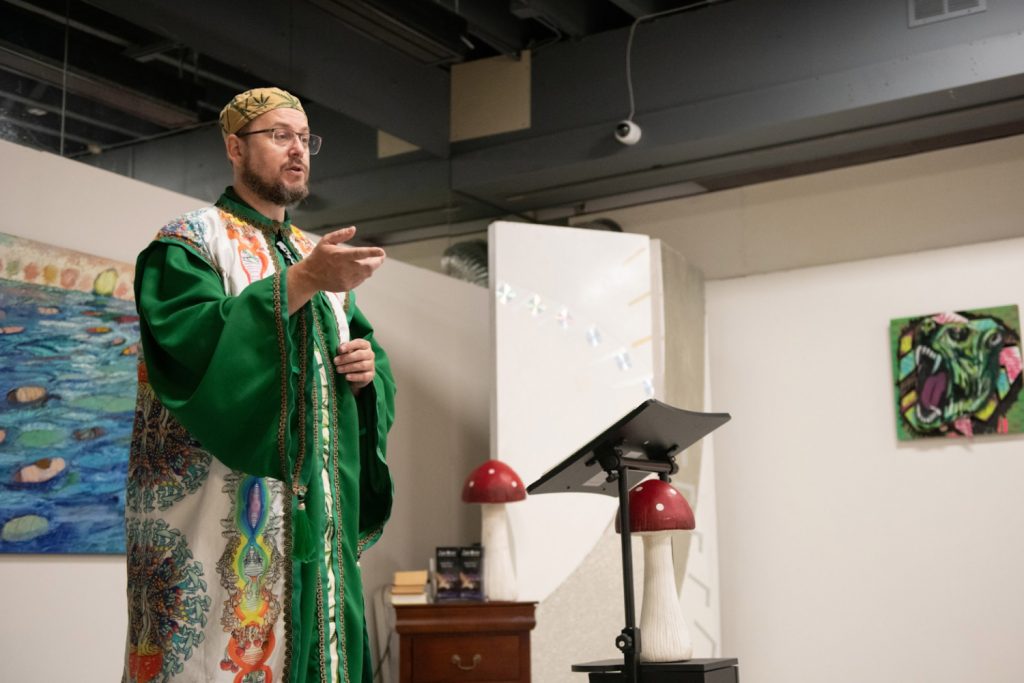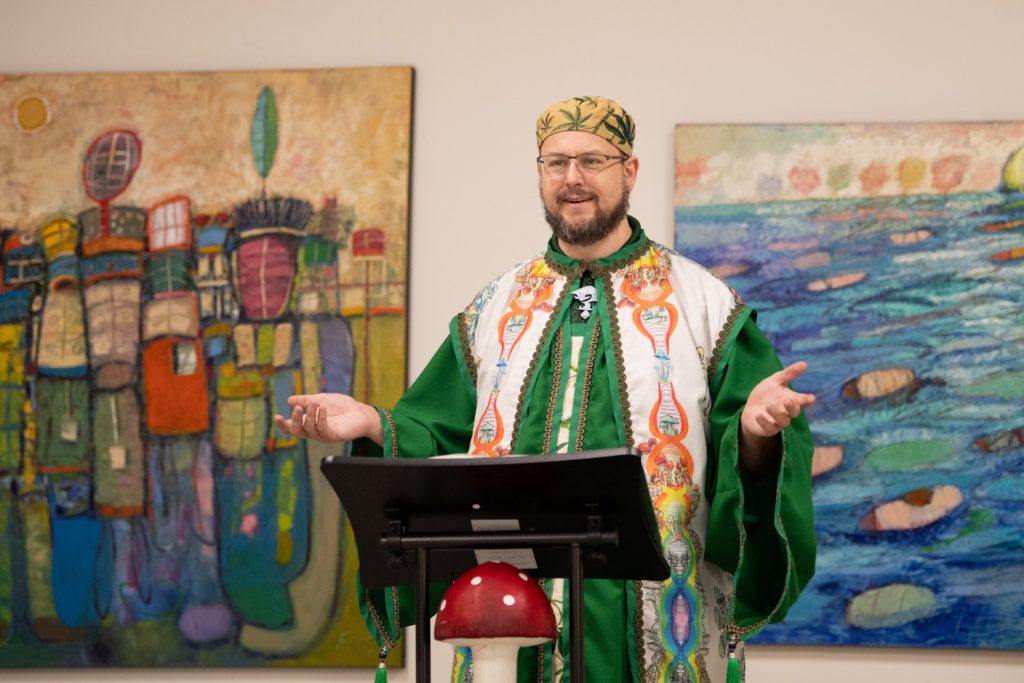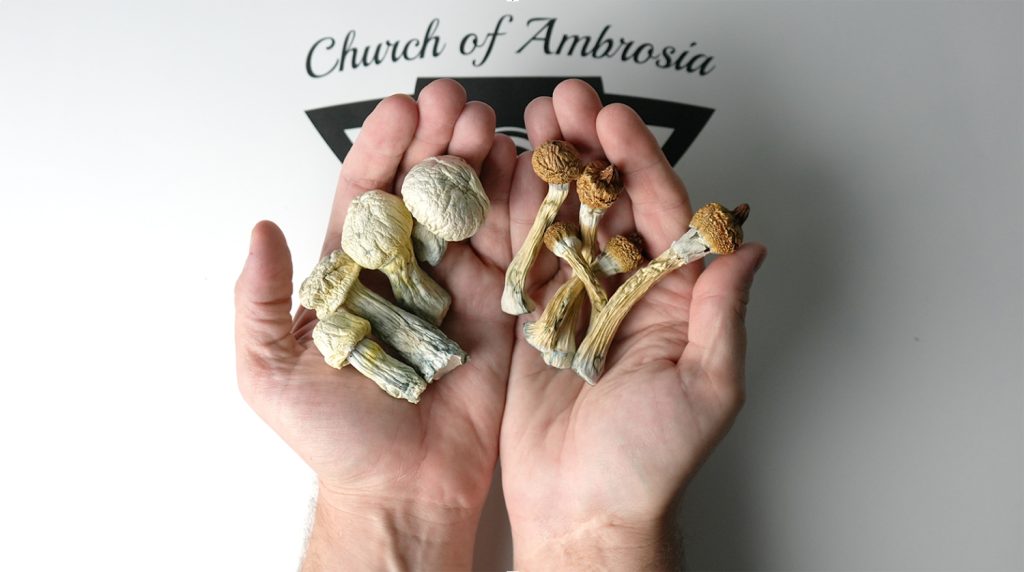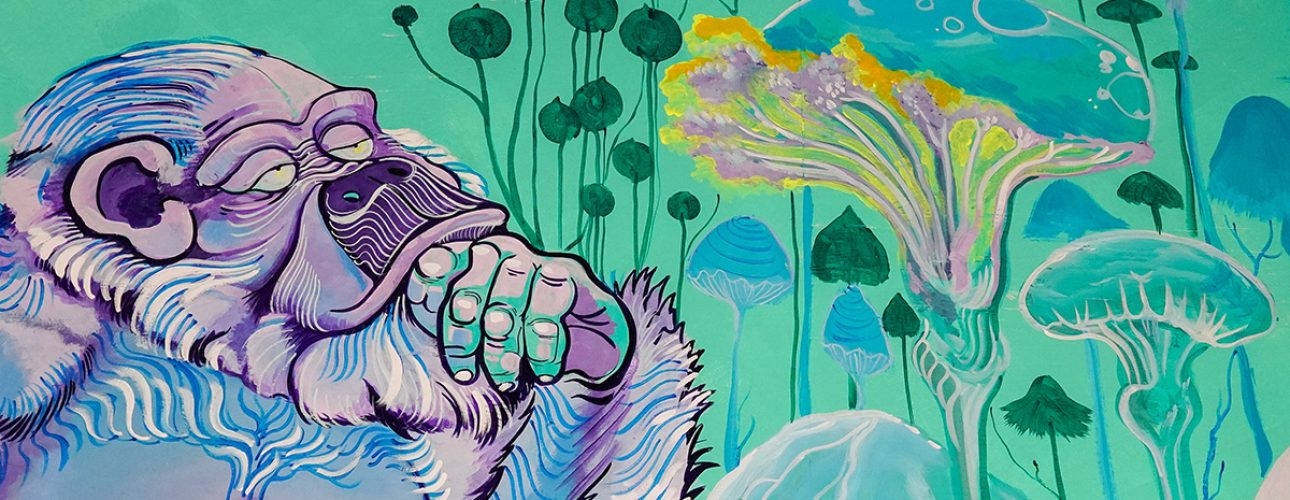Pastor cites harassment from city Planning Department
Zide Door, the psychedelic church garnering national recognition for its devotion to the spiritual power of psilocybin mushrooms, will close its San Francisco location by the end of this year — the victim of a city planning department bent on expelling the institution, Pastor Dave Hodges said Tuesday.
Church of Ambrosia, which opened Zide Door April 15, 2023, will continue to serve all 120,000 church members at its founding site in Oakland, he said. The Oakland church showcases an impressive mural and other significant psychedelic art.

Hodges said that San Francisco Planning Department officials have targeted the SF location with mandates for structural upgrades, many of them not required before that church opened 20 months ago.
Meanwhile, the political climate for psychedelics has deteriorated since state Sen. Scott Wiener’s SB1012 stalled in committee last April. The bill would have permitted psychedelic-assisted therapy in California in keeping with the growing national interest in psilocybin’s beneficial uses. The legislative setback, in turn, dampened local efforts to achieve a more favorable environment for psychedelic sacraments.
Most disturbing is that the city planning department in recent months has caustically criticized the church in the local media.
“It seemed to me like we were dealing with a bunch of people on mushrooms that were trying to convince us that they weren’t hosting bunches of people on mushrooms,” chief of staff for the department, Daniel Sider, told a reporter in a recent interview.
The church closing is the latest example of how some policies of the city squeeze small entities in the area.
Hodges said he is concerned that the Planning Department’s targeting of the church constitutes religious discrimination.
“It’s obviously hostility from people in the Planning Department,” he said.
The city Planning Department has required extensive, six-figure structural fixes.
The church rents the site at 1121 Howard St. in San Francisco from building owner Tatiana Takaeva Shiff. She echoed the pastor’s observations.

“I never had any problems with the planning department until Dave opened the church,” she said. “It was fine.”
Takaeva said her own efforts to remodel the building for her art gallery, Arttitud, were abandoned in the COVID epidemic.
Meanwhile, the building – like many others south of Market — is frequently vandalized. The church has made the area safer by sharing videos with the police, including one of a stabbing outside the back door of the church. The church also has responded to multiple overdoses, sometimes calling ambulances or by making available Narcan, a well-known anti-opioid treatment.
“We’ve saved lives,” the pastor said. But when windows are broken, the city forbids boarding them up. Instead, planners require costly “ingressed” shutters, designed to be flush with the building exterior.
Mayor-Elect Daniel Lurie, who will be sworn into office Jan. 8, has vowed to hold City Hall accountable. “There are going to be changes,” Lurie told KQED in August. Hodges said he hopes that accountability will extend to the city Planning Department.
If tolerance toward the church improves, the church could eventually reopen Zide Door in San Francisco.
But for now, Hodges said, “the signs of the universe are saying, ‘Get out of SF as soon as possible.’ ”

Media note: Pastor Dave Hodges will hold a press conference at 11 a.m. Wednesday at Zide Door Church, 1121 Howard St., San Francisco, to discuss the Zide Door closure.
About us: Dave Hodges is the founder of the Church of Ambrosia and pastor of Zide Door, the Church of Entheogenic Plants. He is known for starting the first medical cannabis club in San Jose and for his work with high-dose mushrooms in exploring the origins of religion. Dave has spent the past 15 years fighting legal cases to protect sacred plants he believes in. Dave’s work with mushrooms to explore religion led him to high-dose work.
